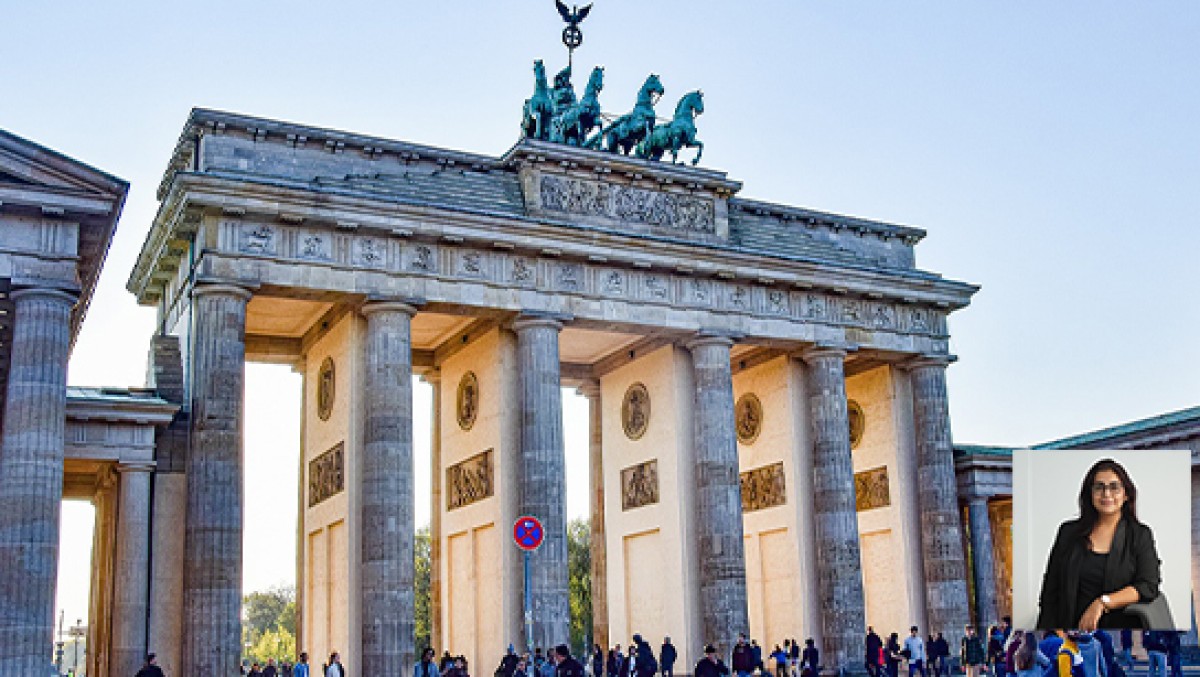
Kerala startups have already made headway into the prestigious German market. (Inset: Kanchi Arora). Photo credit: Nikolaus Bader/Pixabay
Germany will look to identify the areas to expand technological tie-ups in Kerala during the Global Huddle 2023, according to Kanchi Arora, Political and economic affairs adviser at the German Consulate in Bangalore.
“Being based in Bangalore, we acknowledge the need to shift our focus towards Kerala's unique startup environment. Our primary emphasis at the Global Huddle 2023, recognising Kerala's vibrant startup ecosystem and rich talent pool, will be to delve into and understand the dynamics of this flourishing entrepreneurial landscape,” said Arora in an exclusive interview with Tiktalk Newsletter.
This approach shows the growing importance Germany is giving to projects in India as the country looks to reduce dependency on Chinese manufacturers and diversify production bases. Since Chancellor Olaf Scholz’s visit to India in February this year, collaborative deals between the two countries have accelerated. This has led the country to look beyond the established IT hubs like Bangalore, Delhi, and Mumbai.
Exchange of visits is also being encouraged, and a team of startups led by the Kerala Startup Mission visited major cities in Germany in February this year to interact with startups and investors there. AsiaBerlin, funded by the government of Berlin, plans a similar trip of stakeholders to India soon.
Against this backdrop, the mission of the German team heading to the Global Huddle is pretty much clear.
“Our main objective is to explore avenues for fostering connections between the startup ecosystems of Kerala and Germany. We aim to identify synergies and specific thematic areas that can pave the way for meaningful collaborations and partnerships,” said Arora.
Germany is the industrial powerhouse of Europe, with its manufacturing, heavy machinery, and automotive sectors setting global benchmarks. As these sectors undertake efforts to keep up with technological changes, innovative ideas are being hoovered in from across the globe.
“India and Kerala are excellent innovation spaces, where our German companies can find talent as well as innovative and cost-effective solutions when it comes to the future of their industries. Maybe more succinctly: Can a start-up from Kerala, for example, in AI, match with a German manufacturing SME for mutual benefit.”
The startup scene in Kerala has already made headway into the prestigious German market with companies like Accubits and Palnar Transmedia having a significant presence in Germany through tie-ups and acquisitions. Both these firms are involved in cutting-edge technology products with most of their work done at their offices in Kerala.
Another high-visibility German firm with deep-rooted ties in India is SAP Labs, which is headed by a Keralite Sindhu Gangadharan. As she wrote recently, “there are more than 1,600 Indo-German collaborations and over 600 Indo-German Joint Ventures fuelling one of the most exceptional bilateral partnerships in the world.”
Despite that around 80 percent of them are centred around cities like Bangalore, Delhi, and Mumbai. This is what the German delegation to Trivandrum event aims to correct.
“The Huddle and such tech sector gatherings play a pivotal role in strengthening ties between Germany and Kerala by bringing together all stakeholders. They provide a platform for meaningful interaction, fostering collaboration among businesses, government representatives, and innovators,” says Arora.
“The format of huddle allows you to explore freely. Its energetic and informal, exactly what businesses need to grow and collaborate. Ultimately, these events create a conducive environment for building lasting relationships and enhancing bilateral cooperation between Kerala and Germany.”